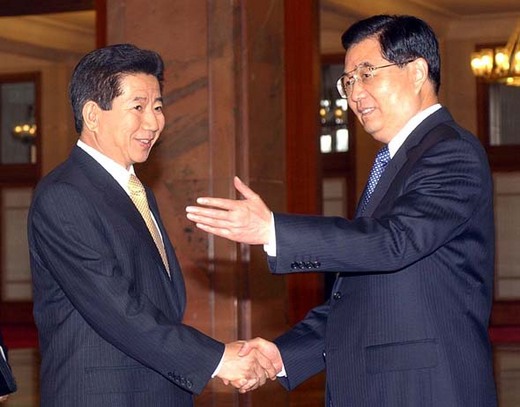 |
But Song noted that the two leaders did not discuss specific details of the UNSC's draft resolution. "The two leaders did not discuss details of the necessary and appropriate countermeasures by the UNSC. Both parties will hold follow-up negotiations on the effects of U.N.-led or individual sanctions for the denuclearization of the Korean Peninsula," he said. During his one-day trip to Beijing, Roh also met separately with Chinese Premier Wen Jiabao and Wu Bangguo, chairman of the Standing Committee of the National People's Congress, to discuss closer bilateral ties in the fields of economy and politics. Meanwhile, Roh and Hu agreed not to escalate a dispute over their nations' shared ancient history. "President Roh asked that the Chinese side take considerate measures to minimize the negative impact from a bilateral history conflict, and President Hu promised to fulfill a bilateral verbal agreement reached in August 2004," Song said. China's attempt to integrate old Korean dynasties, such as Goguryeo and Balhae, that had existed in what is the present territory of China, into Chinese history under the pretext of historical research has angered the Korean people. The August 2004 agreement called for Seoul and Beijing to prevent bilateral history issues from escalating into political disputes. On the economic front, the two leaders agreed to expand bilateral trade to US$200 billion by 2012. They also reached a tentative agreement to meet again on the sidelines of next month's summit of the Asia-Pacific Economic Cooperation forum in Vietnam, according to Song. Friday's summit was the first working meeting by the two countries' leaders since the establishment of bilateral diplomatic ties in 1992. It was the third meeting between Roh and Hu following the South Korean leader's visit to Beijing in July 2003 and Hu's visit to South Korea in November 2005. Roh and Hu met separately with Japanese Prime Minister Shinzo Abe over the past week to discuss similar regional issues. Beijing, Oct. 13 (Yonhap News)






